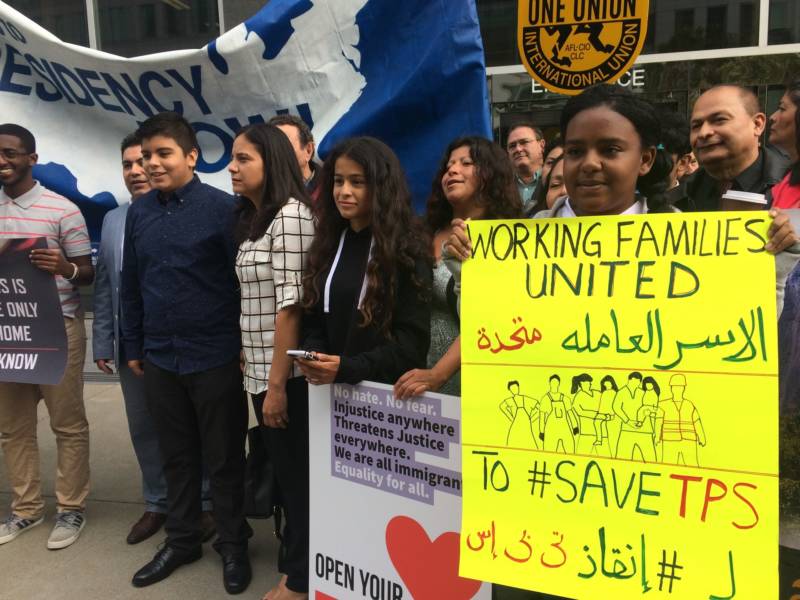Last October, a federal judge in San Francisco temporarily blocked the government from ending the protections. The 9th U.S. District Court of Appeals is expected to soon decide whether the program can continue, said Ahilan Arulanantham, lead plaintiff attorney with the ACLU of Southern California.
Lainez and other Salvadoran TPS holders have had to undergo security screenings at least every 18 months to renew their permits.
Arulanantham said the lawsuit guarantees TPS holders from the affected countries six months of protections beyond the date of an adverse court decision.
“While one year is better than six months, it’s still a very short amount of time for a person who’s lived here lawfully for 20 years,” said Arulanantham. “Particularly for U.S. citizen children of TPS holders, they could face an impossible choice ... living in the only country they’ve ever known or be[ing] separated from their parents.”
Under the new agreement, the U.S. is also providing Salvadoran TPS holders with another year to repatriate to their home country if courts rule the Trump administration ended TPS lawfully.
“The Administration’s goal is to create an orderly and responsible process to repatriate Salvadorans and help them return home; however, a sudden inflow of 250,000 individuals to El Salvador could spark another mass migration to the U.S. and reinvigorate the crisis at the southern border,” said a Homeland Security statement justifying the agreement.
Julia Gelatt, a senior policy analyst at the Migration Policy Institute, said it was “encouraging” to see the administration recognize the potentially destructive impact of a sudden return of all TPS holders to El Salvador.
The recent agreements with Central American countries are part of a broader Trump administration strategy to stop potential asylum-seekers from reaching the U.S. border, she said. But those agreements don’t seem to address the reasons people say they are fleeing those countries in the first place, she added.
“They won’t get rid of any of the push factors that are causing people to seek protections in the U.S. — from poverty to political oppression,” Gelatt said.
Earlier this month, the administration reversed its decision to stop sending aid to Guatemala, Honduras and El Salvador after those countries signed agreements affecting asylum-seekers.

